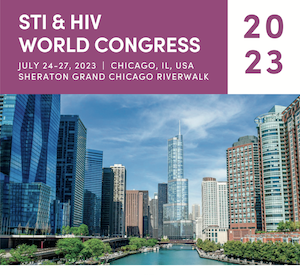Clinical Science
Session: The Future of STI Detection and Treatment: AI, Bots, and More!
O8.5 - Validation of an Easy to Administer Algorithm to Define Penicillin Allergy Status in STI Clinic Outpatients
Wednesday, July 26, 2023
11:00 - 11:15 CST
Location: Chicago 9

Rebecca A. Lillis, MD
Associate Professor of Medicine
Louisiana State University Health Sciences Center, New Orleans
New Orleans, Louisiana, United States
Primary Presenter(s)
Background: Up to 15% of STI patients report penicillin allergy (PCN-A), complicating treatment for syphilis and gonorrhea. However, formal allergy testing shows that >90% do not have IgE-mediated hypersensitivity. Practical algorithms for STI care settings are needed to differentiate who can be safely treated with beta-lactams, and those at higher risk for PCN-A who warrant alternative therapies. We assessed, in patients with reported PCN-A, a questionnaire instrument and validated results by formal skin test or oral challenge allergy testing in four STI clinics.
Methods: We enrolled 281 STI clinic patients >18 years-old who reported PCN-A. All subjects completed a questionnaire to determine PCN-A risk. Subjects determined to be “low risk” by questionnaire were randomized equally into two arms: standard penicillin skin testing for both major and minor determinants followed by a 250mg oral amoxicillin challenge; or direct oral amoxicillin challenge (25mg of amoxicillin followed by 250mg amoxicillin). Skin test outcomes were wheal formation (≥ 5mm) for penicillin allergens. Oral amoxicillin challenge subjects were observed for symptoms and signs suggestive of allergic reaction.
Results: 75 subjects who reported anaphylaxis or other serious allergic reaction in the past 10 years on the questionnaire were labeled “high-risk” and excluded from further allergy testing (Figure). Of the “low-risk” subjects, 100 received skin testing; none demonstrated reactivity. 97 skin tested subjects proceeded with oral challenge and 2 experienced mild allergic reactions. 102 subjects participated in the amoxicillin direct oral challenge protocol: 95 completed both oral doses without evidence of allergy; 4 were symptomatic after the 25mg dose and 2 following the 250mg oral dose. Overall, 4% (8/198) of participants identified as “low risk” by questionnaire had penicillin allergy demonstrated by allergy testing. There were 17 potential reactions to oral amoxicillin: one moderate reaction required oral steroid treatment.
Conclusion: We demonstrate that a questionnaire can be used in STI care settings to identify patients who can be safely evaluated for PCN-A by skin test or direct oral challenge. Using this algorithm, 66%(180/281) of enrolled subjects with a PCN-A history could be safely treated with first-line therapies for gonorrhea or syphilis.

